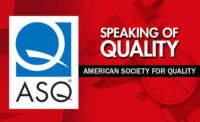In his Other Dimensions column, “Perplexing Paperwork” (Quality, May 2012, p. 14), Hill Cox explains the confusion for buyers and auditors concerning gage calibration certificates and calibration. Cox cautions you to investigate the data behind the certificate, to compare the information offered in a calibration report.
Similar confusions occur when discussing training certificates and certification. ASQ has offered professional certifications for more than 44 years. As of September 2012, we offer a total of 17 quality certifications, including the Certified Quality Engineer, Certified Quality Auditor, and Manager of Quality/Organizational Excellence. Over the years we have done our share of explaining the difference between certificate and certification. All manufacturing professionals hear and see the words certificate and certification all the time but what do they really mean? Are they interchangeable terms?
According to the Merriam-Webster Dictionary, a certificate is:
“A document containing a certified statement especially as to the truth of something; specifically: a document certifying that one has fulfilled the requirements of and may practice in a field.”
The same dictionary offers this definition of certification:
“The act of certifying: the state of being certified.”
Readily apparent is that both definitions include the words certifying and certified. While this will certainly disturb English teachers who told us never to define a word using derivatives of that word, clarity can be found through the words “document” and “state.” It comes down to this: a certificate is a piece of paper; a certification is the process for demonstrating proficiency and comprehension in your given field. In other words, you receive a certificate, you achieve a certification. To put this argument to rest, certificate and certification are not interchangeable terms, and there is a need for both of them in business.
When you complete a training session you want something to acknowledge the accomplishment. Certificates fulfill that need, offering tangible evidence that requirements have been met. However, when it comes to a skill set, completing is not enough. There needs to be evidence of experience and knowledge. This is where certification comes in.
Certification is a proven differentiator. We have seen that more and more companies are requiring professional certifications for employment. Many companies also build certification into employee professional development plans. ASQ members tell us of the benefits they receive from their company and co-workers: upper-management recognition, career advancement, increased salary. While a certification doesn’t always lead to monetary gain, the latest Quality Progress Salary Survey indicates that the majority of certified professionals receive higher pay than their noncertified co-workers.
Organizations need individuals with specific, proven skills—and they are willing to pay for it to fulfill immediate staffing needs. There is also evidence that companies also find certification programs as a long-term benefit.
With baby boomers readying for retirement, companies face significant concerns about knowledge transfer as younger workers join their organizations. Adding to this dilemma, data from the Manufacturing Institute shows that 82% of manufacturers report a moderate-to-serious skills gap in skilled production. There are manufacturing leaders who see the rigor of certification programs as a means to lessen these significant problems. The Manufacturing Institute is now taking a lead to bring greater awareness to the issues—and a solution.
The Manufacturing Institute has developed the Manufacturing Skills Certification System, partnering with 14 associations—including ASQ—to achieve a goal of 500,000 industry-based credentials to individuals by 2016. This timely initiative directly addresses deficits in manufacturing education and training to secure qualified candidates in highly skilled manufacturing jobs. The Manufacturing Skills Certification System is endorsed by the National Association of Manufacturers.
Each of the partners offers unique certification programs that will help achieve the aggressive goal. Experienced workers need relevant, proven professional development programs they can rely on for continued growth. Students and individuals new to the workforce need the same programs available to them in order to build a professional foundation, providing them with a broad array of job opportunities. The Manufacturing Skills Certification System proves that there are many organizations ready to provide those important services. For your hard work, you will achieve a certification—and receive a certificate.
ASQ is headquartered in Milwaukee, Wis., with national service centers in China, India and Mexico. www.asq.org.

